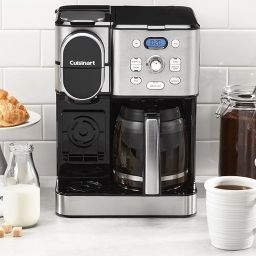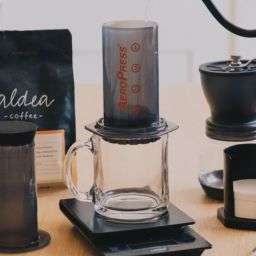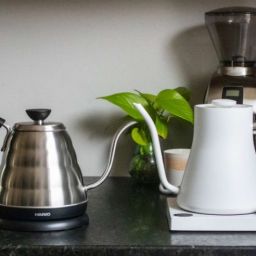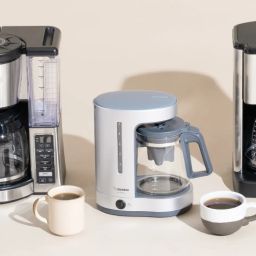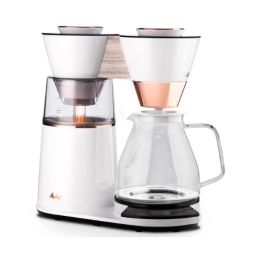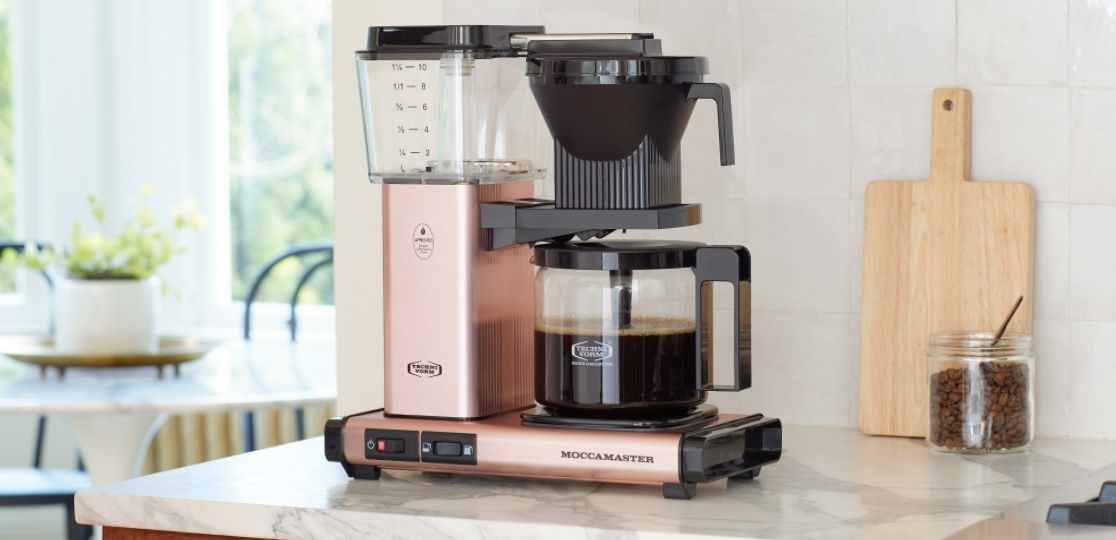
In recent years, there’s been a significant shift toward sustainability and health consciousness, which has sparked a demand for plastic-free products. This trend extends to kitchen appliances, including automatic drip coffee makers. Consumers are now more aware of the potential health risks associated with plastics, particularly those that come into contact with hot beverages.
Additionally, the environmental impact of plastic waste has led many to seek more eco-friendly alternatives. As a result, the market has responded with an increasing availability of automatic drip coffee makers that minimize or eliminate the use of plastic components.
Is There an Automatic Drip Coffee Maker Without Plastic Parts?
Yes, there are automatic drip coffee makers available that either do not contain plastic parts or significantly reduce plastic use in key areas such as the water reservoir, brewing chamber, and internal piping. Models like the Bunn VP17-1SS and the Technivorm Moccamaster stand out for their commitment to minimizing plastic use. These coffee makers are designed with metal components, offering a robust solution for those seeking a healthier and more environmentally friendly option. They not only reduce potential chemical exposure but also enhance the durability and longevity of the appliance.
Key Takeaways
- BPA-Free Certification: Ensure that any plastic components, if present, are BPA-free to avoid chemical leaching.
- Durability: Opt for models known for their sturdy construction. Stainless steel and glass components are preferable for longevity and safety.
- Eco-Friendly Accessories: Look for coffee makers that come with eco-conscious accessories, like reusable filters made from metal or other sustainable materials.
Maintenance Tips:
- Regular cleaning and descaling are crucial to maintain the performance and extend the life of your coffee maker.
- Prefer manual cleaning methods over harsh chemicals to preserve the integrity of the coffee maker’s components.
Key Features of Plastic-Free Coffee Makers
When choosing a plastic-free coffee maker, the material used in its construction is of utmost importance. Stainless steel and glass are commonly preferred materials due to their durability and non-reactive nature, which ensures that no unwanted flavors are imparted to your coffee. Stainless steel is especially valued for its strength and resistance to rust and corrosion.
A coffee maker featuring a stainless steel water reservoir and brewing chamber can significantly reduce the risk of chemicals leaching into your coffee, a concern often associated with plastic components.
Moreover, many high-quality plastic-free coffee makers incorporate glass carafes. Glass is not only aesthetically pleasing but also completely inert, meaning it does not alter the taste of your coffee or absorb odors. These materials ensure that the coffee maker not only lasts longer but also remains safe and healthy for everyday use. By prioritizing these materials, manufacturers are able to provide coffee enthusiasts with products that uphold the integrity of their brew.
Benefits of Using a Plastic-Free Coffee Maker
Health Benefits
One of the primary benefits of using a plastic-free coffee maker is the avoidance of BPA (Bisphenol A) and other potential harmful chemicals that can leach from plastic when it is exposed to hot water. BPA has been linked to various health issues, including hormonal disruptions and increased risk of certain types of cancers.
By choosing a coffee maker that uses safer materials like stainless steel or glass, you reduce your exposure to these chemicals, making your coffee consumption safer over the long term.
Environmental Impact
Choosing a plastic-free coffee maker also has significant environmental benefits. By reducing the demand for plastic products, you contribute to less plastic waste, which is crucial in the fight against global plastic pollution. Additionally, because materials like stainless steel and glass are more durable and often recyclable, they help promote sustainability.
These choices not only ensure that you are drinking healthier coffee but also that you are doing your part for the environment by minimizing waste and supporting products that are built to last.
Popular Models of Plastic-Free Coffee Makers
When it comes to choosing a coffee maker that minimizes or eliminates plastic, three models stand out for their commitment to quality and health-conscious design: the Bunn VP17-1SS, the Technivorm Moccamaster, and the Cuisinart CPO-850. Each offers different features and degrees of plastic-free components, catering to various preferences and needs.
Bunn VP17-1SS
The Bunn VP17-1SS is renowned for its robust construction entirely from stainless steel, including the water reservoir and brewing components. This model is a favorite in commercial settings due to its durability and rapid brewing capability. It can brew a full pot of coffee in just a few minutes, making it ideal for high-demand environments.
The absence of plastic not only ensures that there are no chemicals leaching into your coffee but also significantly increases the unit’s longevity.
Technivorm Moccamaster
A staple in the world of premium coffee makers, the Technivorm Moccamaster is celebrated for its meticulous craftsmanship and exceptional brewing quality. Although it features some plastic components, these are BPA-free and strategically placed where they do not come into contact with hot water or coffee grounds.
The Moccamaster is particularly noted for maintaining the optimal brewing temperature, which enhances the extraction of coffee flavors and aromas, ensuring a superior cup every time.
Cuisinart CPO-850
The Cuisinart CPO-850 bridges the gap between traditional and modern, combining a sleek design with practical features. It offers programmable settings and a thermal carafe designed to keep coffee hot for several hours without a heating plate. Like the Moccamaster, it includes minimal plastic, which is BPA-free and does not interact with hot water.
This model is perfect for those who appreciate the convenience of a programmable coffee maker but want to avoid the risks associated with typical plastic parts.
FAQs
How do I maintain my plastic-free coffee maker?
Maintaining a plastic-free coffee maker involves regular cleaning to prevent buildup of coffee oils and mineral deposits from water. Use a mixture of vinegar and water to descale the machine every few months, and rinse thoroughly with water to remove any vinegar residue. For daily cleaning, disassemble any removable metal or glass parts and wash them with mild detergent.
How can I find replacement parts?
For replacement parts, check with the manufacturer’s website or customer service. Most reputable brands offer replacement components like carafes and filters. Ensure that the replacements are also plastic-free if that is your preference.
How do I verify a coffee maker’s plastic-free claims?
To verify plastic-free claims, look for certifications or product specifications on the manufacturer’s website. Reputable brands will specify which parts are made from materials like stainless steel, glass, or BPA-free plastics. Checking customer reviews and product Q&As can also provide insights into the accuracy of these claims.
What about the longevity and warranty of these coffee makers?
Plastic-free coffee makers often come with a warranty that can range from one to several years, indicating the manufacturer’s confidence in their product’s durability. Check the warranty terms before purchasing to understand what’s covered. Generally, these models are built to last longer due to the durability of materials like stainless steel and glass compared to plastic.
Final Thoughts
Choosing a plastic-free coffee maker is not just a lifestyle choice but a commitment to health and environmental stewardship. These models minimize the risk of chemical leachate and often come with the added benefits of enhanced durability and aesthetic appeal.



